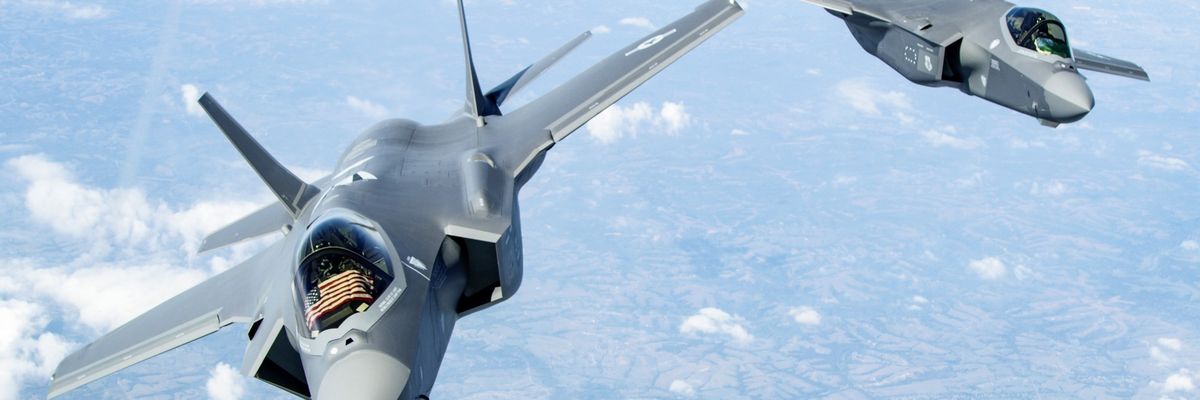In some places they call this, “a lotta nerve.” According to the Wall Street Journal yesterday, UAE leaders are threatening to back out of a $25 billion arms deal because they don’t like the security requirements that the United States have placed on the transfer.
Good, so kill the deal.
As you’ll remember, the Trump administration agreed to sell F-35 fighter jets to the Emiratis in exchange for their signature on a new normalization agreement with Israel, otherwise known as the Abraham Accords. From there, Tel Aviv raised a ruckus about the sale hurting their qualitative military edge in the Middle East so they bargained for more goodies for themselves. Then they supported the deal.
In the meantime, members of Congress tried to kill the deal, considering that the UAE and their pals in Riyadh (also the potential recipient of billions of dollars in new American weapons), had been responsible for the devastating war in Yemen, in addition to oppressing their people, and in the case of the Emirates, violating UN arms embargoes. Unfortunately, their effort went nowhere. Biden, for all of his talk about holding Middle East despots accountable, has signaled that the UAE deal will proceed, after initially teasing opponents with a sense that he might do the right thing and thwart it.
In an ironic twist, however, it looks like Washington’s client states aren’t through with trying to squeeze more juice from this lemon. Reports indicate that on the eve of a high-level visit to the Pentagon, UAE leaders say they want to kill the F-35 transfer because the Americans have put too many onerous restrictions on the technology, fearing Chinese espionage:
The letter communicating the threat was written by a relatively junior official in the government, suggesting the overture was a negotiating tactic heading into the meeting, U.S. officials said. Other officials said that while the U.S. has legitimate security concerns, there was a scramble to salvage the sale of weapons to a Gulf partner.
Put aside for a moment that security concerns over Chinese intellectual property theft when it comes to the U.S. military doesn’t come out of nowhere. Part of Edward Snowden’s trove of hacked Pentagon documents showed that Chinese hackers had stolen F-35 blueprints years ago.
The real gall on display here is that the UAE is horse trading with the U.S. because it knows that Washington and Lockheed Martin are desperate for the sale. The idea that the U.S. was doing them a favor was an illusion — apparently it was the other way around. Meanwhile, the Emirates have just inked a deal for 80 of France’s fighter jets. The hope that there will ever be any peace on this part of the planet seems so far-fetched now, as major powers continue to put profits and shortsighted geopolitical interests before anything else.
We would rather see this deal killed and Lockheed have to go back to its shareholders empty handed. Likely it will go through. But the joke may be on Abu Dhabi after all. If they think the F-35’s security components are onerous, just wait until they find out what the maintenance will cost them. If the Pentagon caves, they will soon find out. It's a trillion dollar dog. Good luck.
















